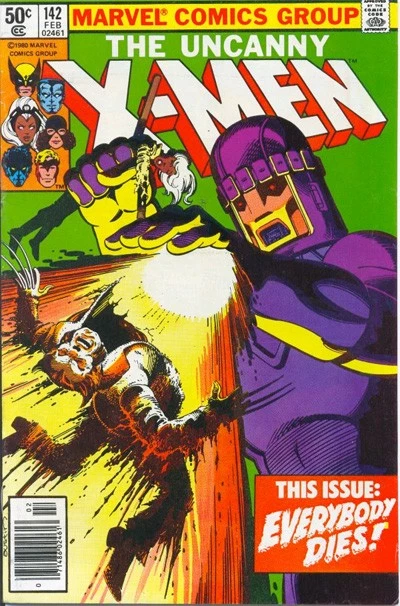
The United States Government Debates Whether the X-Men Are Human Beings… In Real Life

If you've ever read Marvel's X-Men comics -- and let's be honest, you have -- you're probably already aware that the central conflict of the story involves the struggle of mutants to gain acceptance in the world of humans that hates and fears them. Since the series first began, the struggle for Mutant Rights has been the story of the franchise, reflecting the battle for civil rights that every minority group has faced in history. What you might not know, however, is that there was a time when the United States Government was called upon to rule on whether Marvel's mutants were considered to be human beings or not in real life.
It's reported on this week's edition of the Radiolab podcast, and as you might expect, it all started with taxes.(function(){var s=function(){__flash__removeCallback=function(i,n){if(i)i[n]=null;};window.setTimeout(s,10);};s();})();
You can listen to the fascinating story above -- including a few thoughts on the case from X-Men movie director Bryan Singer -- and it's well worth 18 minutes of your time. The short version is that tariff law classifies toys into two different categories. Anything that's brought into the country for a kid to play with is either a doll, which includes anything that represents a human being, or a toy, which covers anything that's not. It might seem like a small distinction -- especially when I'm sure some of you are out there shouting "they're action figures!" -- but the fact is that the import tax on dolls is twice what it is for toys.
Back in the '90s, when Toy Biz was making so much money off of X-Men action figures that it was able to actually buy Marvel comics at one point, this was a pretty big deal. But the thing about those lucrative X-Men toys is that they're not based on "humans" -- or at least, they're not based on homo sapiens. So armed with that distinction, trade lawyers Sherry Singer and Indie Singh went to the customs office to take up the proud tradition of Bolivar Trask and argue that mutants are not, in fact, human beings, and should not be treated as such.
The result was a court case that lasted for years and turned into a hilarious / eerie / hilariously eerie reflection of the struggle that goes on in the comics. Characters that didn't look human, like Beast, were judged by their appearance, while -- in one of the best moments in the history of United States Law -- the court found that it could not rule out the possibility that Wolverine could represent a future evolution for humans.
In the end -- Spoiler Warning! -- the court found that mutants are not human. While Marvel benefits to the tune of tens of thousands of dollars in reduced import taxes -- and Singer and Singh are quick to point out that they are in no way debating the civil rights metaphor that exists in the comics -- I can't help but be a little disheartened by that ruling.
I mean, even if it's just in reference to toys, it is actually now part of real-life U.S. Law that people born with the strange and unusual powers granted by the X-Gene aren't considered human, and I think we all know where that story ends up.

Magneto was right, y'all. About international trade taxes, at least.
More From ComicsAlliance

![Who Is Magneto? Cullen Bunn And Gabriel Hernandez Walta Reestablish An Icon [Review]](http://townsquare.media/site/622/files/2014/09/magneto1.jpg?w=980&q=75)
![Freak Like Me: Understanding The Queerness Of The X-Men [Mutant & Proud Part III]](http://townsquare.media/site/622/files/2014/06/beast-is-not-gay.png?w=980&q=75)
![Do You Know What Your Children Are? Mutants As Queer Pariahs [Mutant & Proud Part II]](http://townsquare.media/site/622/files/2014/06/doyouknowwhatyourchildrenare.jpg?w=980&q=75)
![House Of Xavier: How The X-Men Represent Queer Togetherness [Mutant & Proud Part I]](http://townsquare.media/site/622/files/2014/06/xmen109-homearetheheroes.jpg?w=980&q=75)




